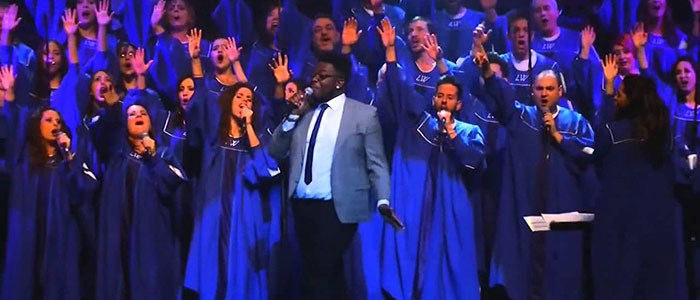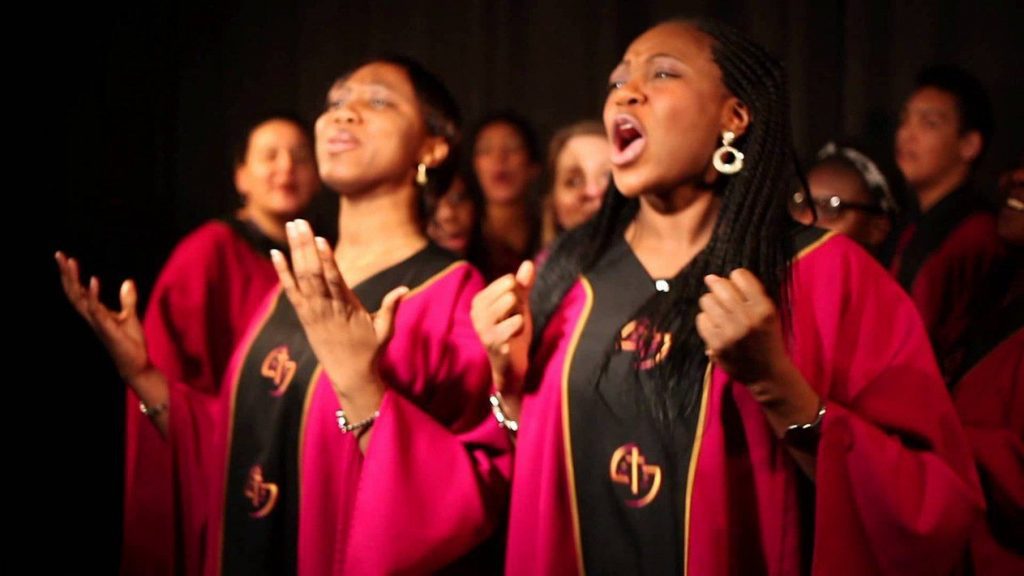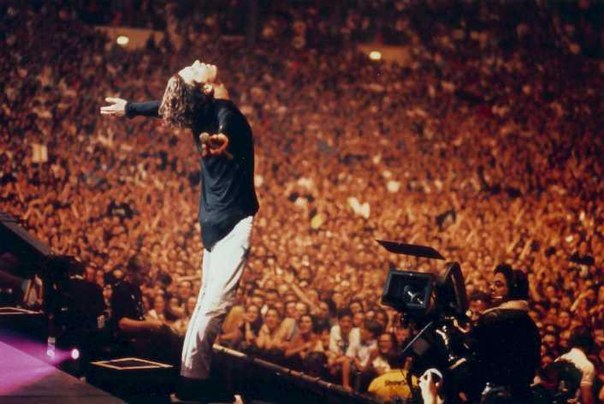Let’s start with the samples
I’m not going to start with the heavy machinery: listen to these tracks: do any of them ring a bell? Can you see what they have in common?
The instrumentation is similar, isn’t it? There’s always a piano with a lot of blue notes, sometimes you also find a hammond organ… the harmony is quite peculiar: somewhere between swing, soul and jazz, but with very peculiar harmonic supports and fixations, with very specific movements that make it a very interesting and little-known genre: nothing less than gospel. In songs like Happy by C2C you even find a kind of entertainer who sings a very simple lyric about happiness, although the most popular theme in gospel is the happiness of the encounter with God and the joy of believing in the figure of the creator and following his message. These are the words usually recited by the pastors of black Protestant churches in the USA. Something similar happens in the movie-musical Sister act, remember? When they sang the Oh happy day, or the Oh mary, they were singing the Oh happy day, or the Oh mary.
Soundtracks, another way of marketing gospel
If you look at this, it is a pure musical song with gospel touches (which, by the way, results in another way of marketing the genre itself). Precisely because of the music, the film was a blockbuster in its day and the album of the musical was also marketed and in fact continues to be marketed today (in a couple of clicks you can buy the original music of the film on Amazon). And that’s not to mention the numerous performances of the film musical that have been made all over the world to this day, which in a way offers the idea that although the gospel is not triumphing internationally both in its original version and in its possible more current version, it doesn’t mean that it couldn’t do so any day.
What defines gospel? Examples
But my point is that true gospel is different from a movie-musical version like the one I was talking about. True gospel is usually a pastor singing the gospel in his own way, telling a story at every service, a different story every day about how God protects the believer if the believer is loyal to him: these sung stories are semi-improvised, but they send a message to the parishioners.
In some cases (in churches with a big budget) the pastor has a choir for the big concerts, and there are usually black female vocalists, who accompany the pastor’s melodic line with harmony (in these cases they are fully prepared gospel songs, not like in the case of the mass, in which the conductor is the priest singing, accompanied by some musical phrases that serve as a response on the hammond organ when he breathes between phrases). Apart from the hammond, there is usually also an electric bass, various synthesizers and workstations with more electronic sounds (whistle leads, wurlitzers…), and drums. Of course, it doesn’t have to be the pastor at the centre, a gospel song can also have a female parishioner or a nun as the main singer. This is more or less a summary of what would be the case with gospel.
In view of the act of trading
Obviously, if you need to mix electronic music with gospel, you can compose original lines within the aesthetics of the genre, record them and sample them, or directly, as in the case of electroswing, sample authentic gospel music melodies, adding a strong rhythm and a bass, lots of FX… a bit like always, but giving it a commercial and danceable touch. And as we have verified when listening to the themes of the first videos, these works have everything that the commercial formula asks for, a good rhythm, good bass, and a lot of musicality, and even without being all of them strictly current themes when listening to them today it is easily verified that they have not been left behind because they are very well worked.
So… why?
Now we come to the difficult part: a possible explanation? As I mentioned, gospel is a genre closed to the black Protestant community, as well as to the history of the division of blacks and whites in the USA, which made the latter develop their own vision of the Christian church, and with it they composed their own hymns to the Most High and gospel songs, a unique approach that they knew how to transmit with pure art. No doubt these are several factors that greatly reduce the chances of gospel being as popular as jazz, for example, within its original category. And since it is not widely known in this version, it seems difficult for urban music artists to take the risk of introducing it into the scene. That is to say: it is religious music (commercial music, except for the odd dancehall track dedicated to Jah or marijuana use as a way to get closer to God, almost never deals with religious themes) and in its context we find components of racial marginalisation and otherness (in itself it is not popular, nor does it seek popularity).

A matter of interests
Even taking all this into account, some of these tracks are known to all of us, especially Bills. Seen in this light, it is difficult to understand how this song, as we mentioned earlier with Bogaloo by Cardy B and company in the case of hip hop-Latin, has not been the initiator of a new genre that could possibly bring out the interesting details that gospel music has, a music that I personally believe has been historically very undervalued (although it is also understandable, since as we have said, its use has not been so commercially focused, mainly because its emergence was exclusively with a view to being listened to and performed live in Protestant churches).
It doesn’t seem, as I say, that there is much interest in marketing it internationally as purely gospel music, and with this precedent, perhaps it is better to explain why many producers don’t understand what this music is all about in terms of offering a modern version of the genre. However, in playing gospel we find producers and musicians of brutal skill, such as Michael Bereal or Rodney East among many others, who could see in it many possibilities outside their little bubble, but it seems they have no intention of offering other visions of the genre.
Other cases
It doesn’t seem, as I say, that there is much interest in marketing it internationally as purely gospel music, and with this precedent, perhaps it is better to explain why many producers don’t understand what this music is all about in terms of offering a modern version of the genre. However, in playing gospel we find producers and musicians of brutal skill, such as Michael Bereal or Rodney East among many others, who could see in it many possibilities outside their little bubble, but it seems they have no intention of offering other visions of the genre.
So what difference could there be, for example, between this and electroswing? Both are genres that do not belong to our time and therefore we are practically not familiar with them, we do not know them, but electroswing has created an important market niche for some time and still survives today when, although with less strength, it continues to sound and has a loyal audience.
And, as I mentioned in the blog why Latin hiphop fusion is not a success internationally, I would like to know what you think about this other case? I encourage you to comment below!
As always, I leave you some similar blogs and remember that you can buy a rap, trap, dembow, pop, r&b, dembow, reggaeton… beat! A la carte – see you next week!






